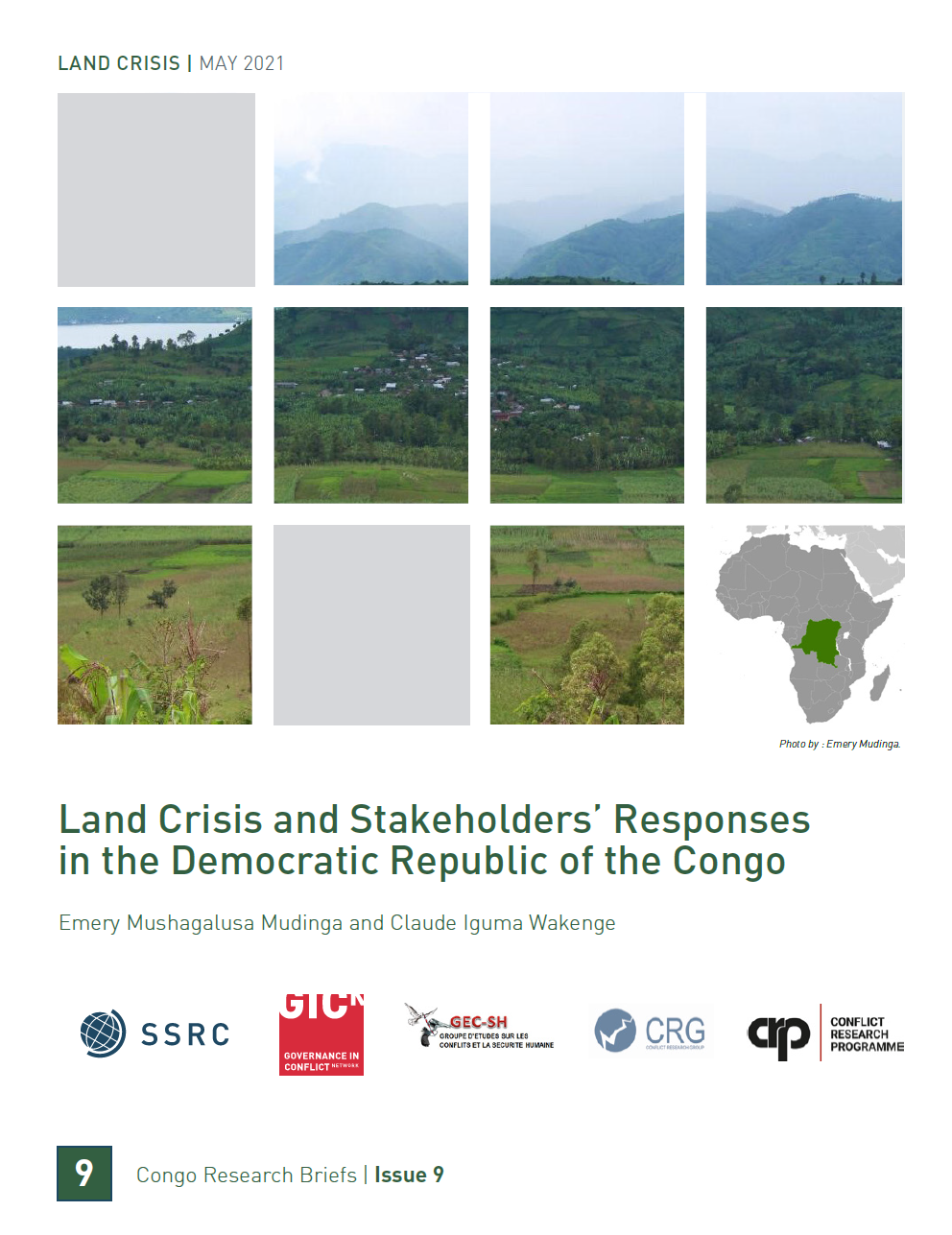Land Crisis and Stakeholders’ Responses in the Democratic Republic of the Congo
Land tenure is a source of violence in eastern Democratic Republic of the Congo (DRC), contributing structurally to fragility in social cohesion. Despite the commitment of the Congolese government, nonstate actors, and donors to land reform, its implementation has failed to produce positive effects. Lack of genuine commitment from the Congolese government to invest in land reform; competition and weak coordination between donors, United Nations (UN) agencies, and local organizations; and an overly technical vision of responses on the ground are the main obstacles. Understanding and redefining the role of donors in the responses to the land crisis is crucial both at the pragmatic level of nonstate actors and at the level of the national land reform process.
We would like to thank Kasper Hoffmann and the reviewers for their very helpful comments on
earlier drafts. We also thank Action pour la Paix et la Concorde (APC) and the Securing Tenure
Sustainable Peace (SecTenSusPeace) project of the Transformations to Sustainability (T2S) Program of ISDR-Bukavu for their collaboration in the production of the data analyzed here.
This research note is part of the publications produced by the Conflict Research Program implemented by the London School of Economics (LSE) in collaboration with Ghent University.
Congo Research Briefs are a joint publication of the Conflict Research Group (CRG) at Ghent University, the Social Science Research Council (SSRC), the Study Group on Conflicts and Human Security (GEC-SH) at the Centre de recherches universitaires du Kivu (CERUKI), and the Governance-in-Conflict Network (GiC). These briefs provide concise and timely summaries of ongoing research on the DRC that is being undertaken by CRG, SSRC, GEC-SH, GiC, and their partners.




